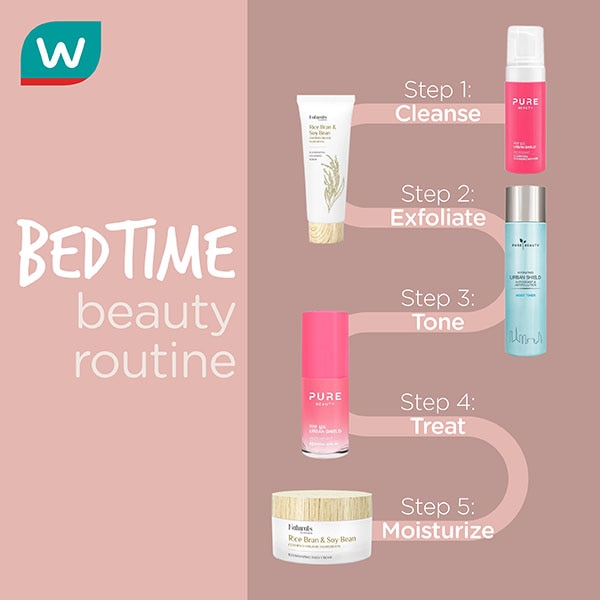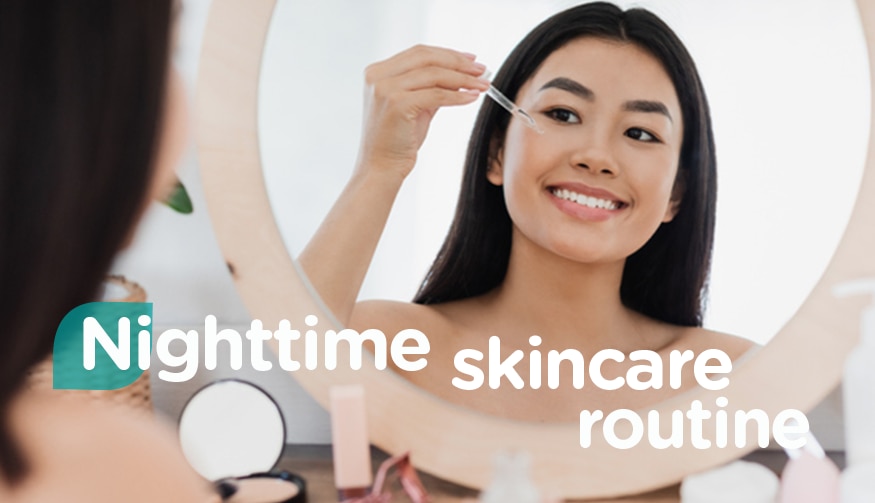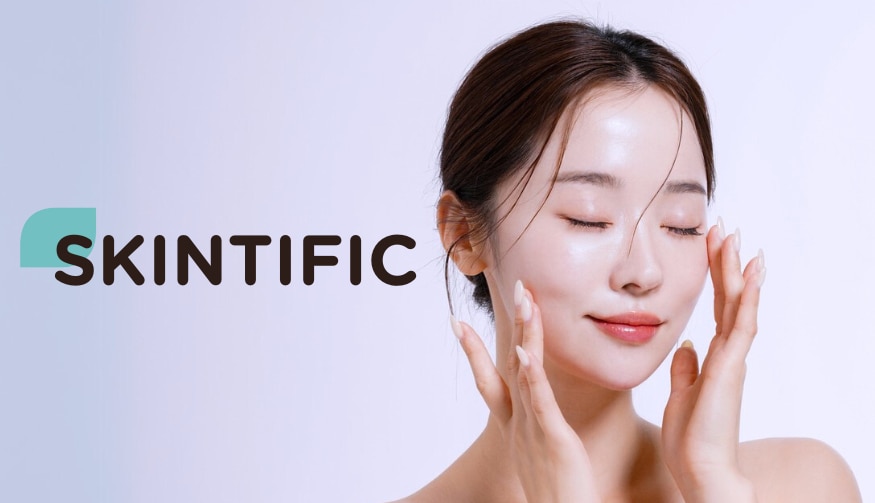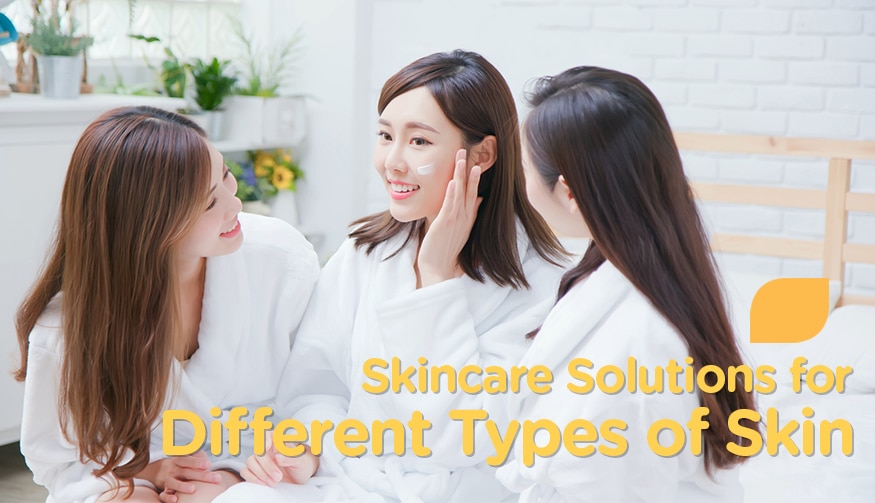Good night-time habits mean good skin. Your skin has different needs in the morning and night. At night, you need to pamper your skin after all it went through during the day. Discover the best nighttime skincare routine and find out the best time to apply…
When is the best time to apply?
9pm to midnight is the best time to apply your strongest, most powerful anti-aging ingredients because you don’t have to worry about protecting your skin from the sun, pollution, or harsh temperatures.
So, how to take care of your skin in your 20s, 30s or 40s?
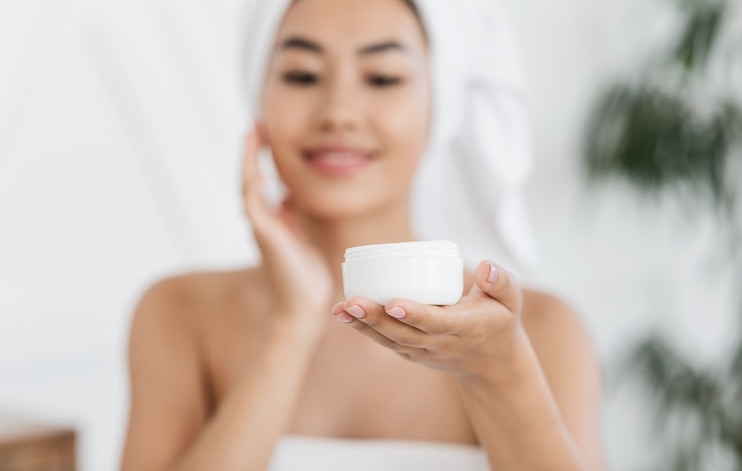
If you’re in your 20s:
Your skin might suffer from acne and breakouts. Get a spot treatment that can work overnight. And exfoliate regularly can slough away surface build up and keep acne at bay.
If you’re in your 30s:
Cell turn-over becomes slower during your thirties, try to look for antiaging treatments and products with retinol, antioxidants, or vitamin C to help restore and repair your skin.
If you’re in your 40s:
Maturing skin thickens as dead skin cells don’t shed as fast as we age. Remember to exfoliate two to three times a week to maintain your youthful glow.
Your nighttime skincare routine
Simply follow these five nighttime skincare steps to help get your skin ready for overnight rejuvenation:
1. Cleanse
Start your nighttime routine with a gentle makeup remover, followed with a gentle cleanser that won’t strip your skin of natural oil.
2. Tone
Prep your skin for your essential serum step, making it penetrate into the deeper layers and work more effectively.
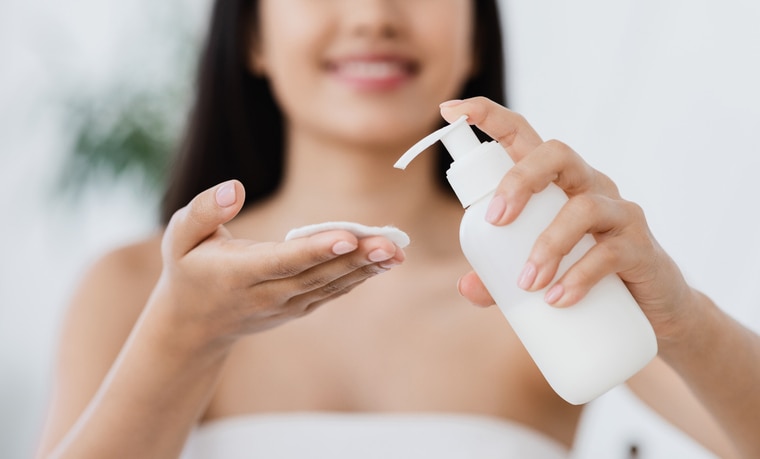
3. Eye cream
Provide the thin skin around your eyes with a targeted treatment to help prevent the signs of aging.
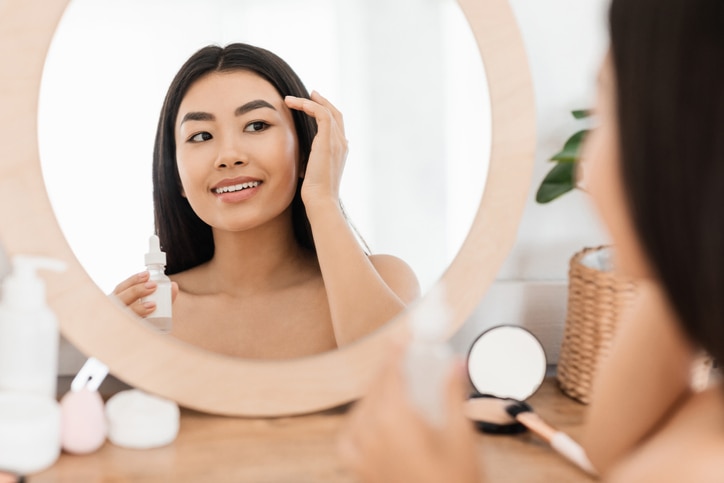
4. Treat
This is the step where you can customize the routine tailored to your skin concerns. Help deliver active ingredients deep within your dermal layers to reap their benefits.
5. Moisturise
Create a barrier that seals in active ingredients and hydration.
